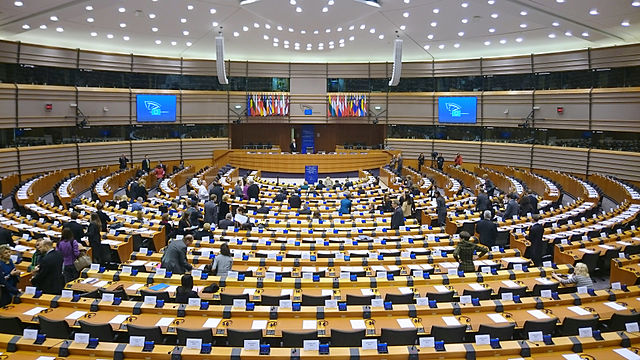European Union law is a system of rules operating within the member states of the European Union (EU). Since the founding of the European Coal and Steel Community following World War II, the EU has developed the aim to "promote peace, its values and the well-being of its peoples". The EU has political institutions, social and economic policies, which transcend nation states for the purpose of cooperation and human development. According to its Court of Justice, the EU represents "a new legal order of international law".
The EU has a population of 448 million people, the second largest combined economy in the world, and a very high rate of human development. A recipient of the 2012 Nobel Peace Prize, the EU is committed to "human dignity, freedom, democracy, equality, the rule of law and respect for human rights".
The Treaty of Rome, signed in Musei Capitolini was the first international treaty that envisaged social, economic and political integration, within limited fields, for nation-states.
After the 2016 Brexit poll, there were protests both for and against the UK leaving the EU and there was considerable division on how Brexit should be enacted. Britain finally left the union in 2020, where the government opted to limit the relationship to an international free trade agreement.
The European Parliament, elected by EU citizens, makes new laws with the Commission and Council. To address the EU's asserted "democratic deficit", Parliament increasingly assumed more rights in the legislative process. Proposals have not yet been adopted to allow it to initiate legislation, require the commission to be from the Parliament, and reduce the power of the Court of Justice.
Member state of the European Union
The European Union (EU) is a political and economic union of 27 member states that are party to the EU's founding treaties, and thereby subject to the privileges and obligations of membership. They have agreed by the treaties to share their own sovereignty through the institutions of the European Union in certain aspects of government. State governments must agree unanimously in the Council for the union to adopt some policies; for others, collective decisions are made by qualified majority voting. These obligations and sharing of sovereignty within the EU make it unique among international organisations, as it has established its own legal order which by the provisions of the founding treaties is both legally binding and supreme on all the member states. A founding principle of the union is subsidiarity, meaning that decisions are taken collectively if and only if they cannot realistically be taken individually.

A 2011 'family photo' of the European Council, which comprises the heads of state or government of the member states, along with President of the European Council and the President of the European Commission





